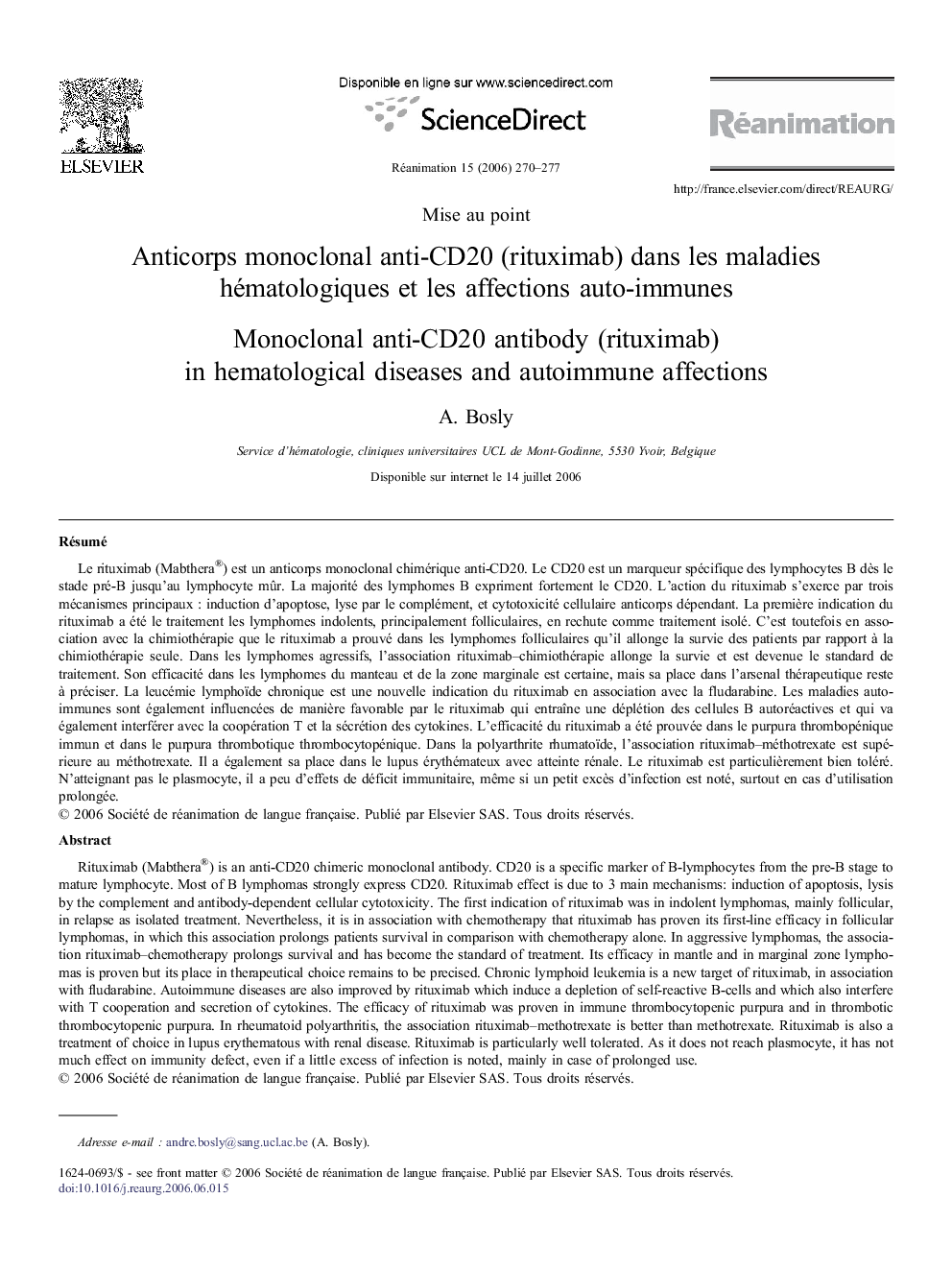| Article ID | Journal | Published Year | Pages | File Type |
|---|---|---|---|---|
| 2612337 | Réanimation | 2006 | 8 Pages |
Abstract
Rituximab (Mabthera®) is an anti-CD20 chimeric monoclonal antibody. CD20 is a specific marker of B-lymphocytes from the pre-B stage to mature lymphocyte. Most of B lymphomas strongly express CD20. Rituximab effect is due to 3 main mechanisms: induction of apoptosis, lysis by the complement and antibody-dependent cellular cytotoxicity. The first indication of rituximab was in indolent lymphomas, mainly follicular, in relapse as isolated treatment. Nevertheless, it is in association with chemotherapy that rituximab has proven its first-line efficacy in follicular lymphomas, in which this association prolongs patients survival in comparison with chemotherapy alone. In aggressive lymphomas, the association rituximab-chemotherapy prolongs survival and has become the standard of treatment. Its efficacy in mantle and in marginal zone lymphomas is proven but its place in therapeutical choice remains to be precised. Chronic lymphoid leukemia is a new target of rituximab, in association with fludarabine. Autoimmune diseases are also improved by rituximab which induce a depletion of self-reactive B-cells and which also interfere with T cooperation and secretion of cytokines. The efficacy of rituximab was proven in immune thrombocytopenic purpura and in thrombotic thrombocytopenic purpura. In rheumatoid polyarthritis, the association rituximab-methotrexate is better than methotrexate. Rituximab is also a treatment of choice in lupus erythematous with renal disease. Rituximab is particularly well tolerated. As it does not reach plasmocyte, it has not much effect on immunity defect, even if a little excess of infection is noted, mainly in case of prolonged use.
Keywords
Related Topics
Health Sciences
Medicine and Dentistry
Emergency Medicine
Authors
A. Bosly,
